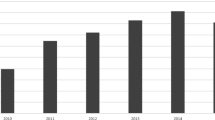Abstract
Optimizing care in medical toxicology necessitates designing and conducting ethical research. Nevertheless, the context of medical toxicology can make clinical research ethically challenging for a variety of reasons: medical toxicology is typified by relative rare conditions; making precise and rapid diagnoses is often fraught with uncertainty; emergent and urgent clinical exigencies make consent difficult or impossible; and some exposures are stigmatized or related to illegal activities that can compromise collecting accurate data from patients. In this paper, we examine some of the ethical issues in medical toxicology research that are especially salient in effort to promote optimal research in the field. The particular issues to be addressed are as follows: (1) rare conditions and orphan agents, (2) randomization and control arms, (3) inclusion and exclusion criteria, (4) outcome measures, (5) consent, (6) confidentiality, (7) registries, (8) oversight, and (9) transparency and reporting. Thinking about these ethical issues prospectively will help researchers and clinicians appropriately navigate them.
Similar content being viewed by others
References
Emanuel EJ, Wendler D, Grady C. What makes clinical research ethical? JAMA. 2000;283(20):2701–11.
US Food and Drug Administration. Developing products for rare diseases and conditions, updated 3 March 2017. Available at: https://www.fda.gov/ForIndustry/DevelopingProductsforRareDiseasesConditions/ucm2005525.htm .
Connolly SJ, Milling TJ Jr, Eikelboom JW, Gibson CM, Curnutte JT, et al. Andexanet alfa for acute major bleeding associated with factor Xa inhibitors. N Engl J Med. 2016;375(12):1131–41.
Portola Pharmaceuticals Inc. Portola Pharmaceuticals receives FDA Orphan Drug designation for Andexanet Alfa, its breakthrough-designated factor Xa Inhibitor antidote, 26 February 2016. Available at: http://investors.portola.com/phoenix.zhtml?c=198136&p=irol-newsArticle&ID=2020507 .
Altagracia-Martinez M, Kravzov-Jinich J, Martínez-Núñez JM, Ríos-Castañeda C, López-Naranjo F. Prussian blue as an antidote for radioactive thallium and cesium poisoning. Orphan Drugs: Research and Reviews. 2012;2:13–21.
Steffen C. The dilemma of approving antidotes. Toxicology. 2007;233(1–3):13–9.
Freedman B. Equipoise and the ethics of clinical research. N Engl J Med. 1987;317(3):141–5.
Green JL, Heard KJ, Reynolds KM, Albert D. Oral and intravenous acetylcysteine for treatment of acetaminophen toxicity: a systematic review and meta-analysis. West J Emerg Med. 2013;14(3):218–26.
Gerardo CJ, Lavonas EJ, McKinney RE. Ethical considerations in design of a study to evaluate a US Food and Drug Administration-approved indication: antivenom versus placebo for copperhead envenomation. Clin Trials. 2014;11(5):560–4.
Schafer A. The ethics of the randomized clinical trial. N Engl J Med. 1982;307:719–24.
Lavonas EJ, Buchanan J. Hemodialysis for lithium poisoning. Cochrane Database Syst Rev. 2015;9:CD007951. doi:10.1002/14651858.CD007951.pub2.
O'Brien DJ, Walsh DW, Terriff CM, Hall AH. Empiric management of cyanide toxicity associated with smoke inhalation. Prehosp Disaster Med. 2011;26(5):374–82.
Corbett SW, Anderson B, Nelson B, Bush S, et al. Most lay people can correctly identify indigenous venomous snakes. Am J Emerg Med. 2005;23(6):759–62.
Buckley NA, Juurlink DN, Isbister G, Bennett MH, Lavonas EJ. Hyperbaric oxygen for carbon monoxide poisoning. Cochrane Database Syst Rev. 2011;4:CD002041. doi:10.1002/14651858.CD002041.pub3.
United States Food and Drug Administration. Exception from informed consent requirements for emergency research. 21 CFR 50.24. Available at: https://www.accessdata.fda.gov/scripts/cdrh/cfdocs/cfcfr/CFRSearch.cfm?fr=50.24.
US National Institutes of Health. Certificates of Confidentiality. Available at: https://humansubjects.nih.gov/coc/index .
Farrugia LA, Rhyee SH, Campleman SL, Ruha AM, et al. The toxicology investigators consortium case registry-the 2015 experience. J Med Toxicol. 2016;12(3):224–47.
Wang GS, Levitan R, Wiegand TJ, Lowry J, et al. Extracorporeal membrane oxygenation (ECMO) for severe toxicological exposures: review of the toxicology investigators consortium (ToxIC). J Med Toxicol. 2016;12(1):95–9.
Watkins JW, Schwarz ES, Arroyo-Plasencia AM, Mullins ME. Toxicology investigators consortium investigators. The use of physostigmine bytoxicologists in anticholinergic toxicity. J Med Toxicol. 2015;11(2):179–84.
American College of Medical Toxicology. American College of Medical Toxicology code of ethics for medical toxicologists. J Med Toxicol. 2015;11(4):471–5.
Author information
Authors and Affiliations
Corresponding author
Ethics declarations
Conflict of Interest
Dr. Sugarman is a member of Merck KGaA’s Bioethics Advisory Committee and Stem Cell Oversight Committee; a member of Quintile’s Ethics Advisory Panel; and has been a consultant to Novartis on a bioethics issue. None of these activities are directly related to the material discussed in this paper. Dr. Stolbach declares that he has no conflicts of interest.
Funding
None.
Additional information
Dr. Sugarman presented a version of this paper as the invited Presidential Keynote, “Exploring Ethical Issues in Medical Toxicology Research,” at the American College of Medical Toxicology’s Annual Scientific Meeting in San Juan, Puerto Rico on April 1, 2017.
Rights and permissions
About this article
Cite this article
Sugarman, J., Stolbach, A. Ethics and Medical Toxicology Research. J. Med. Toxicol. 13, 255–258 (2017). https://doi.org/10.1007/s13181-017-0618-4
Received:
Revised:
Accepted:
Published:
Issue Date:
DOI: https://doi.org/10.1007/s13181-017-0618-4




